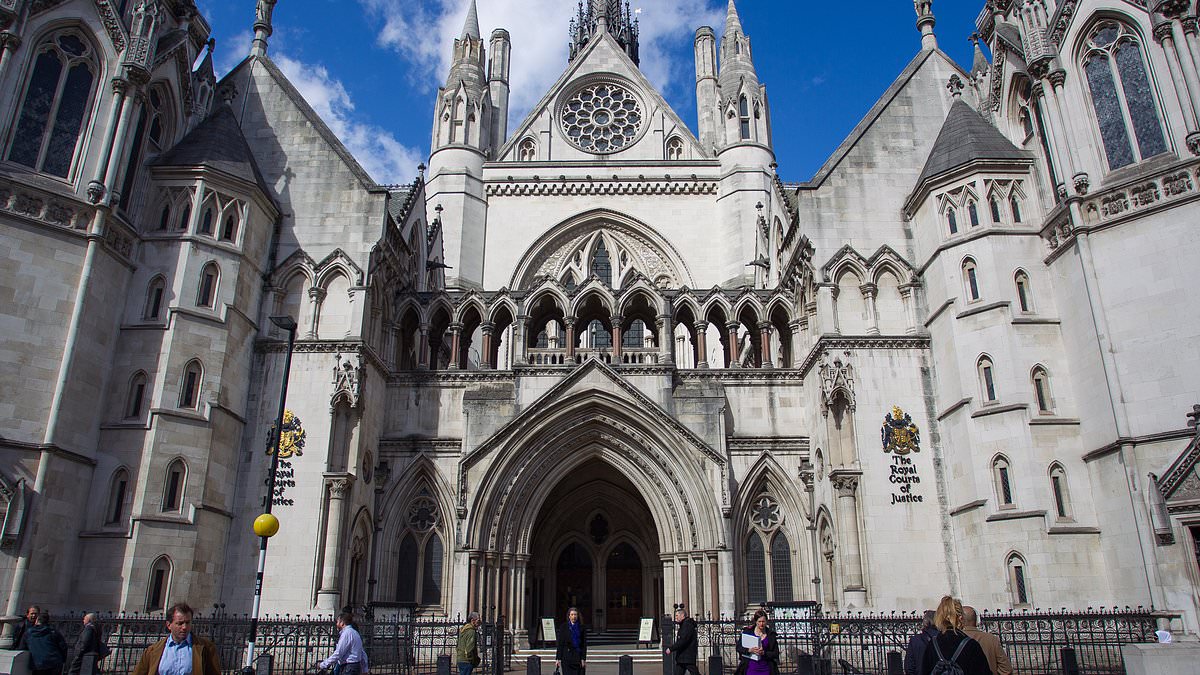A controversial immigration court has been blasted by senior judges over a ‘euphemistic and inadequate’ ruling in favour of an illegal migrant.
The first-tier immigration tribunal decided that Pakistani national Muhammad Arshad should be allowed to remain in Britain on human rights grounds.
The 43-year-old immigration offender has been living in this country without permission for 16 years – and working illegally as a butcher.
But the case went all the way to the Court of Appeal after a series of legal challenges by the Home Office and Mr Arshad’s legal team.
Now the senior court has condemned the original decision by immigration tribunal judge Helena Suffield-Thompson, ruling that it even treated Mr Arshad’s breach of border rules as ‘mitigating factors’.
Shadow Justice Secretary Robert Jenrick expressed concern over the case and said ‘activist judges’ should be brought to account over ‘such flagrant open-borders activism’.
In an unusually strongly-worded criticism of Judge Suffield-Thompson’s ruling, Lord Justice Underhill said the first-tier tribunal had given a ‘euphemistic and inadequate account’ of Mr Arshad’s circumstances.
The Court of Appeal judge said: ‘The first-tier tribunal obscured the fact that Mr Arshad has been here illegally since January 2009 by saying that his immigration history “is not ideal but it is not the worst by any means”.
‘The [tribunal] did not use the words ‘unlawful’ or ‘illegal’ at all, except when it referred to the fact that Mr Arshad had worked even though he had no permission to.
‘Indeed, it seems to have treated the consequences of Mr Arshad’s overstaying as mitigating factors.’
The senior judge said he was ‘troubled’ by the way Judge Suffield-Thompson’s ruling ‘downplays the facts’ over Mr Arshad’s time as a visa overstayer in the UK, and concluded its approach was ‘unlawful’.
Mr Arshad’s legal team originally won their case by arguing their client had the right to ‘private and family life’ under Article 8 of the European Convention on Human Rights.
They said it would be unfair to deport him because it would harm his relationship with his UK-based sister and her children, describing him as their ‘third parent’.
However, lawyers for the Home Secretary argued ‘that there is no such thing as a “third parent”,’ court documents reveal.
The Court of Appeal ruled Mr Arshad does not have the right to remain in Britain.
The case raises serious new questions about the activities of the first-tier immigration tribunal.
The court hears thousands of cases a year but operates in virtual secrecy because it refuses to publish its decisions.
Concerning cases only become known about if they are appealed in a higher court.
It is therefore impossible to say how many cases have involved similar errors to those made in Mr Arshad’s case.
Shadow Justice Secretary Robert Jenrick said: ‘This is the latest example in a long list of cases where immigration judges are failing to apply the law properly.
‘There has to be consequences for these activist judges that display such flagrant open-borders activism.
‘Our legal system needs fundamental reform. Yes, the ECHR is a huge obstacle to border enforcement, but this case highlights how activist British judges are also a huge problem.’
Mr Arshad came to the UK in 2008 on a family visit visa that expired in January 2009 and has been here ever since, working illegally as a butcher and a cleaner, court documents showed.
The Home Office encountered him in 2011 and began removal proceedings, but nothing appears to have then happened in the case for years.
In 2020 he brought an Article 8 claim based on his relationship with his sister and her children.
He won his case in front of Judge Suffield-Thompson in 2022, which was appealed successfully by Home Office at the upper tribunal on the grounds the lower court’s findings ‘perverse or irrational’.
Mr Arshad then went to the Court of Appeal, which upheld the Home Office’s victory.
Last month it emerged that a separate decision by Judge Suffield-Thompson had been overturned after she mixed up Iran and Iraq.
The Home Office has been approached for comment.
